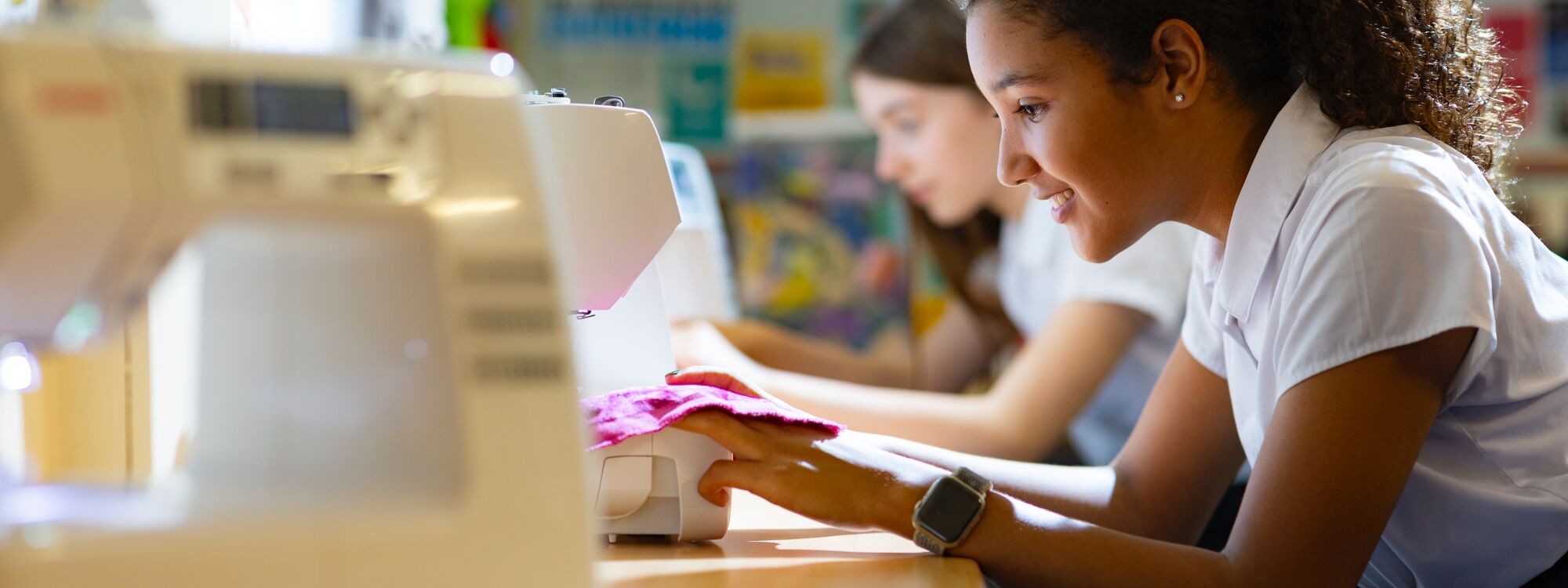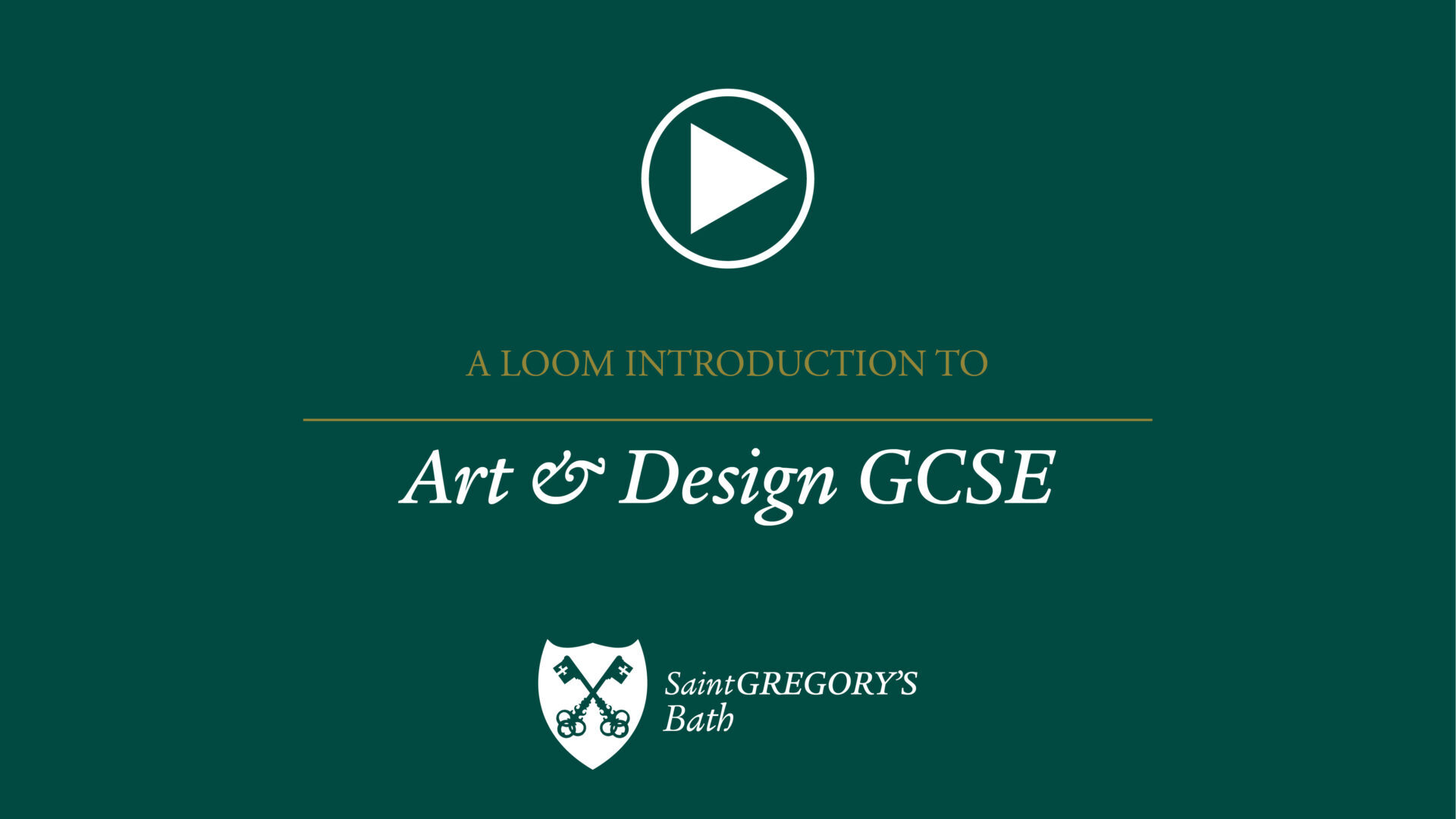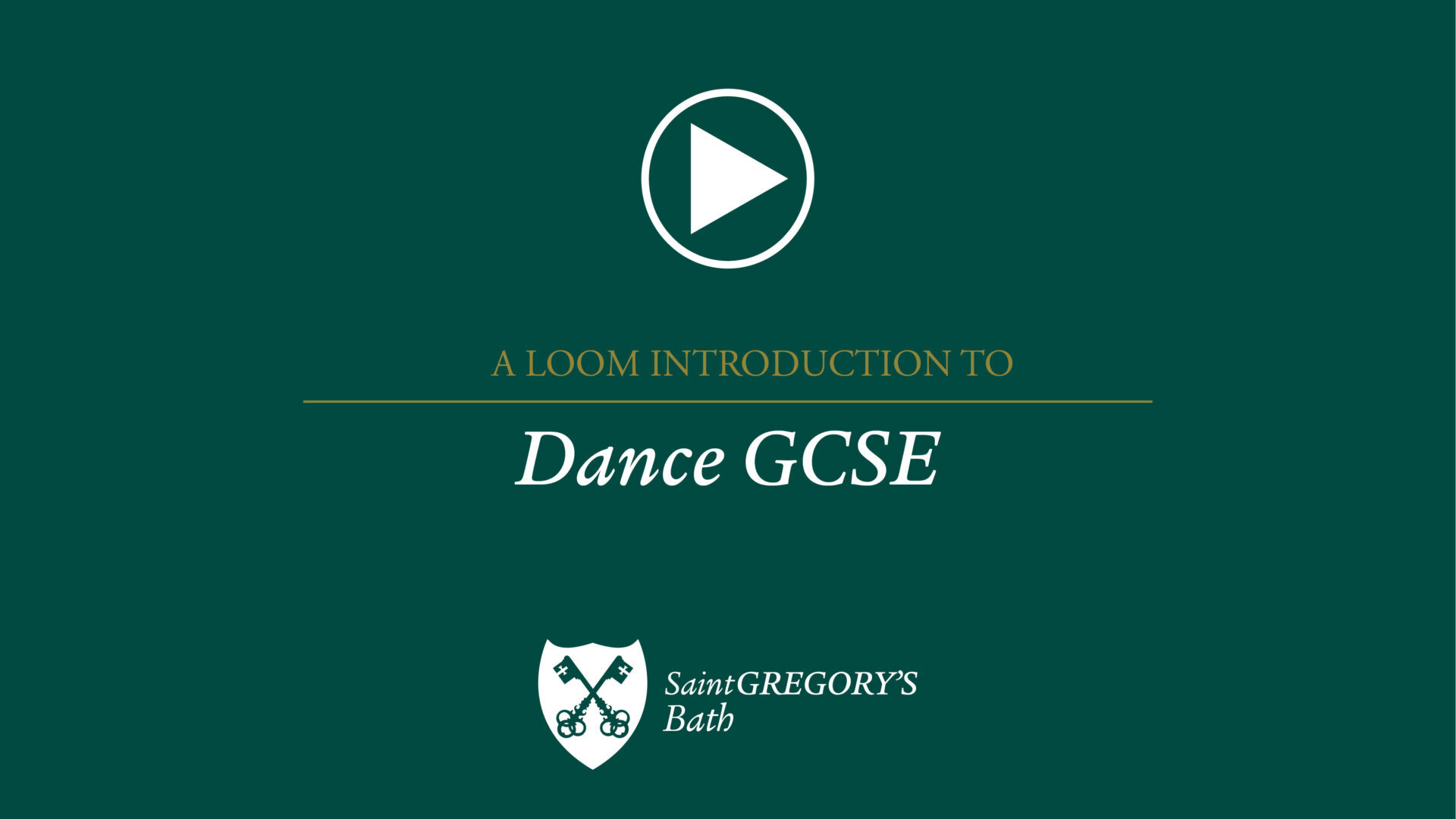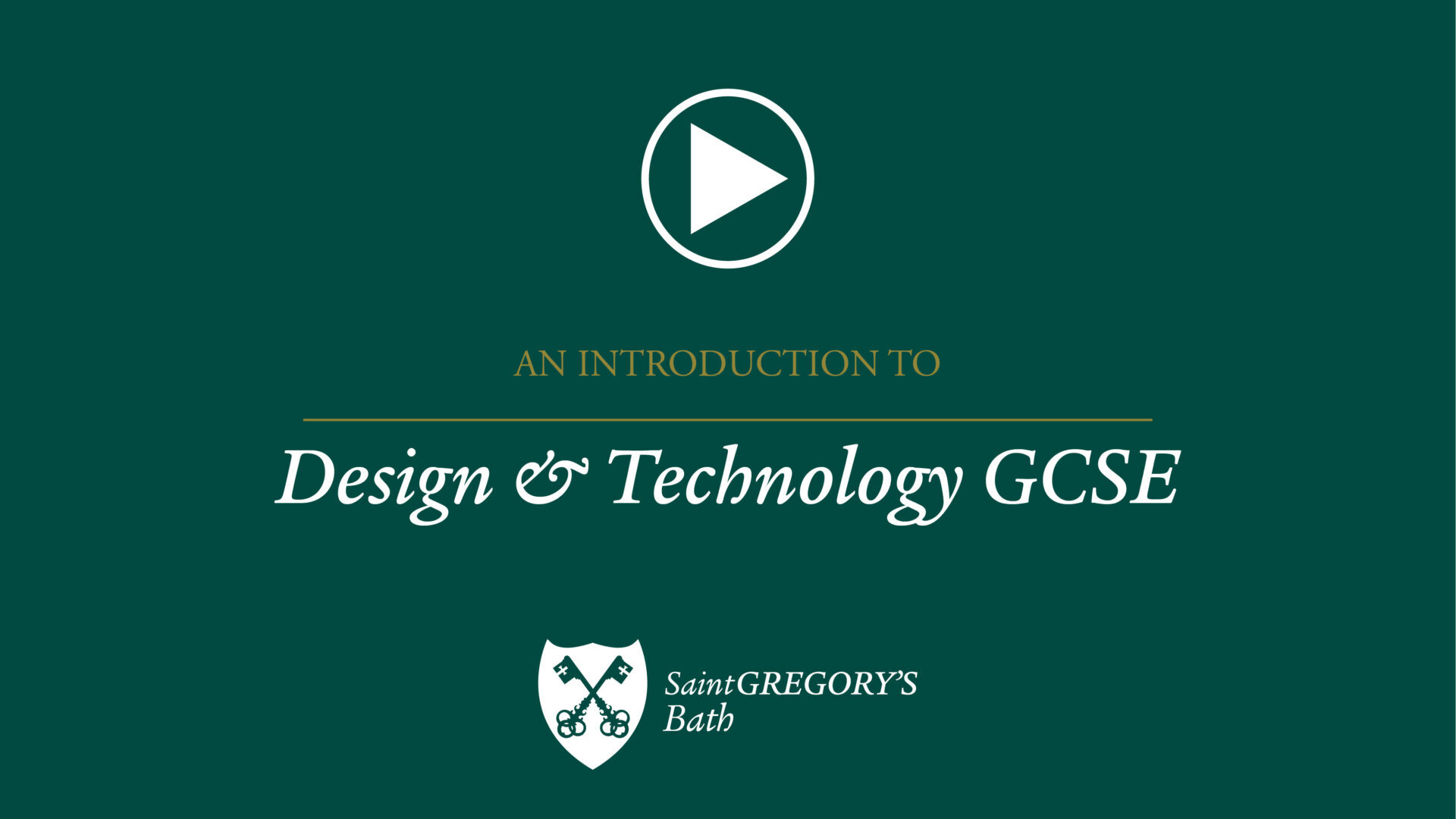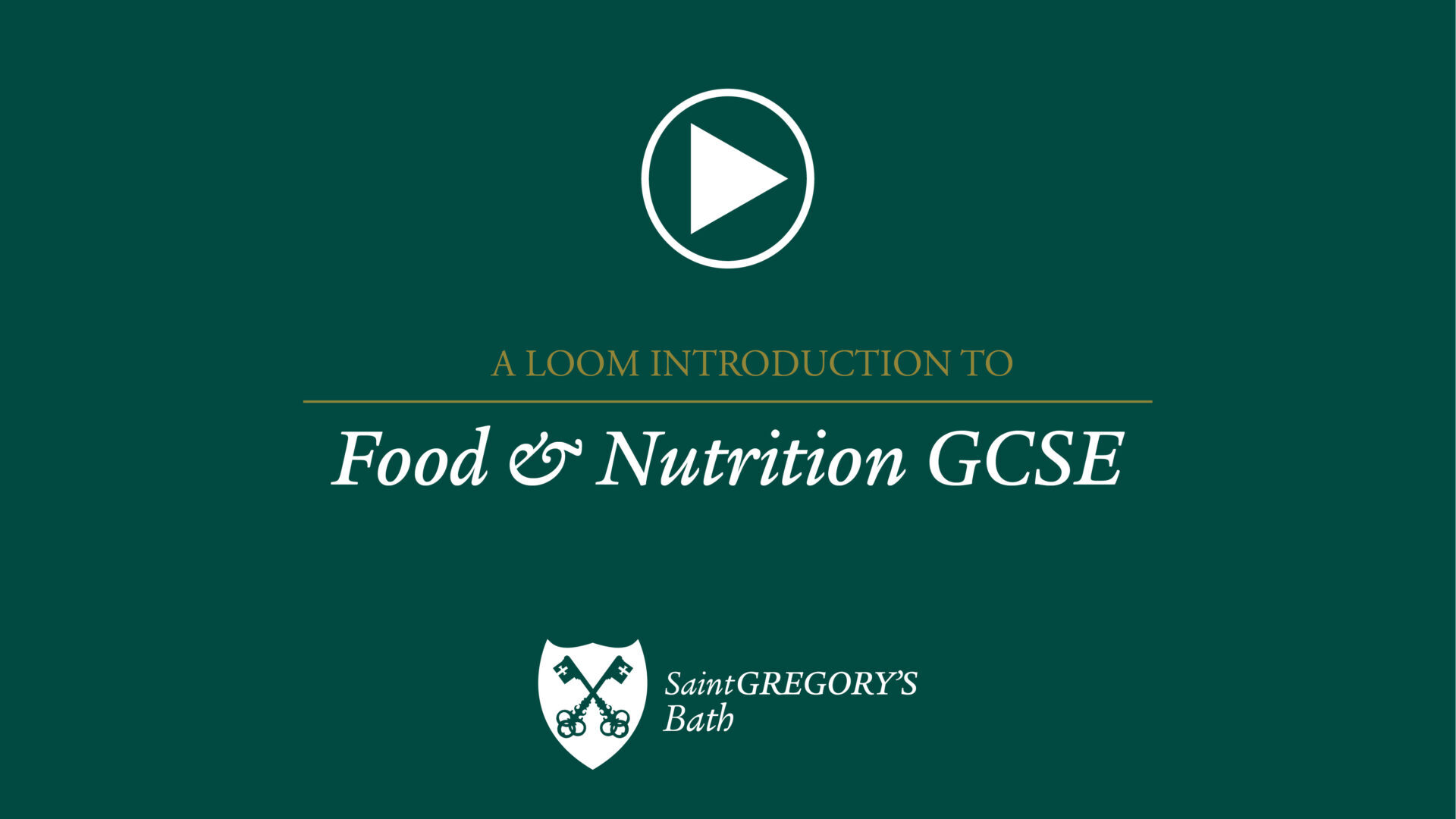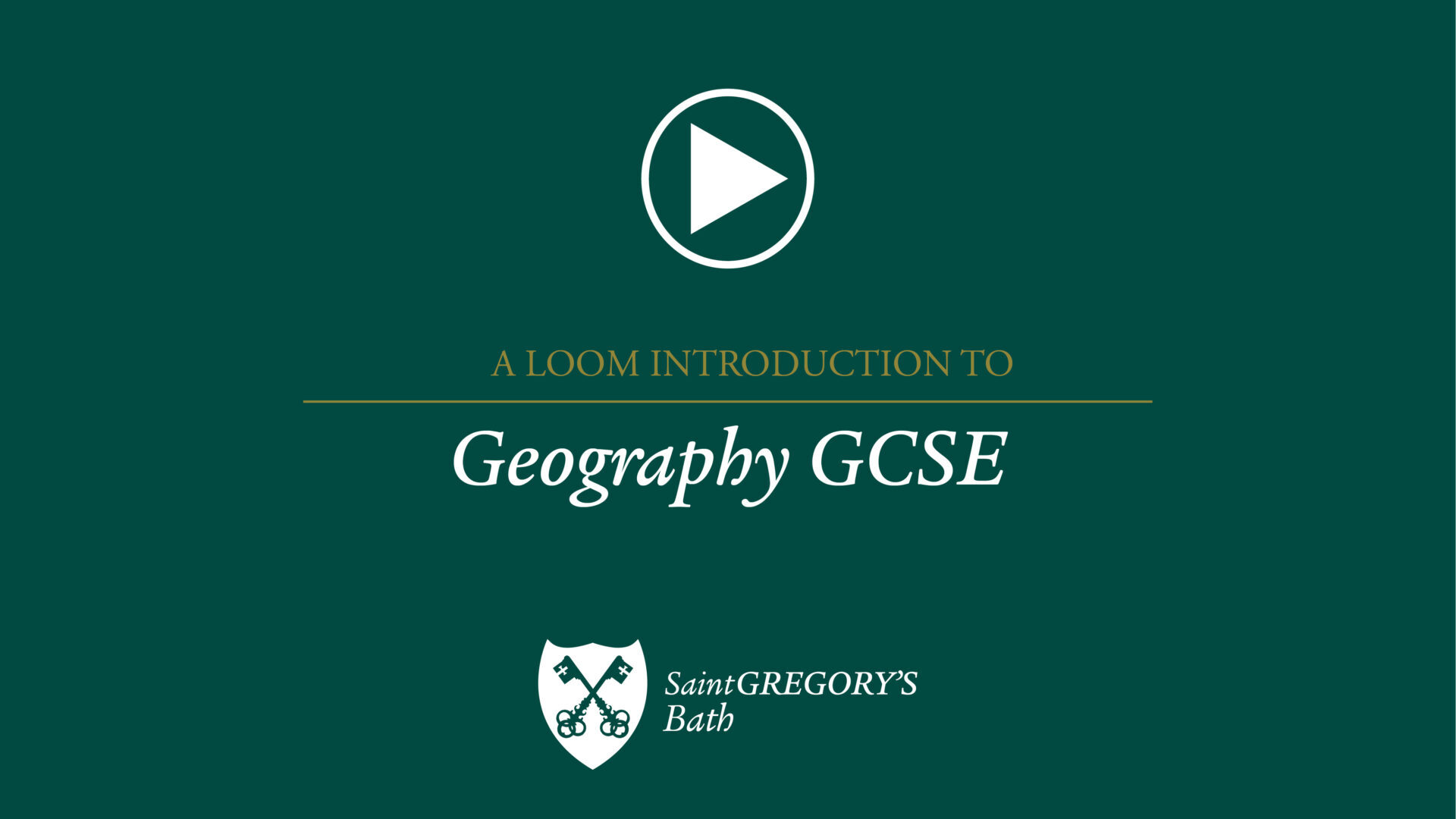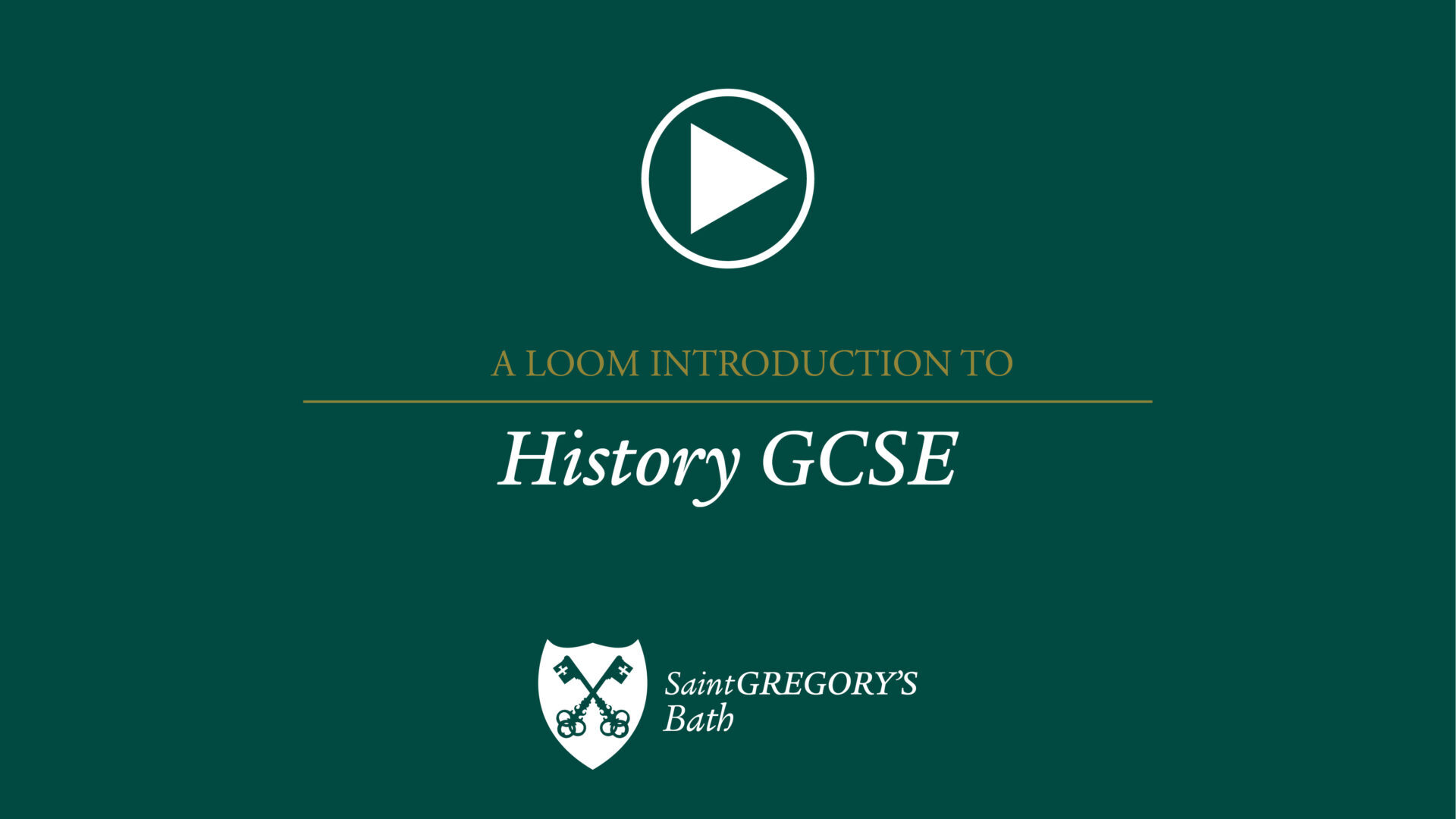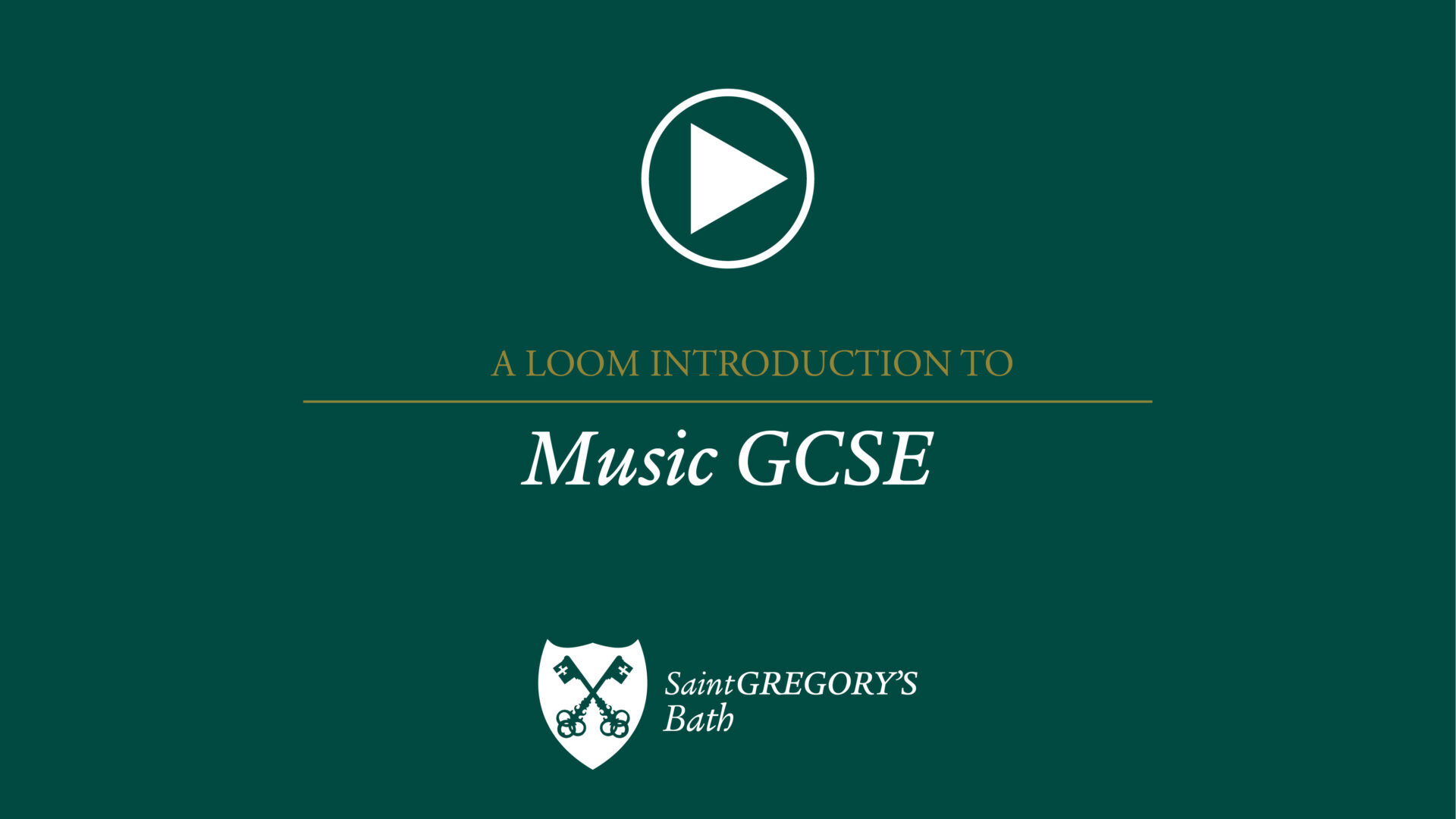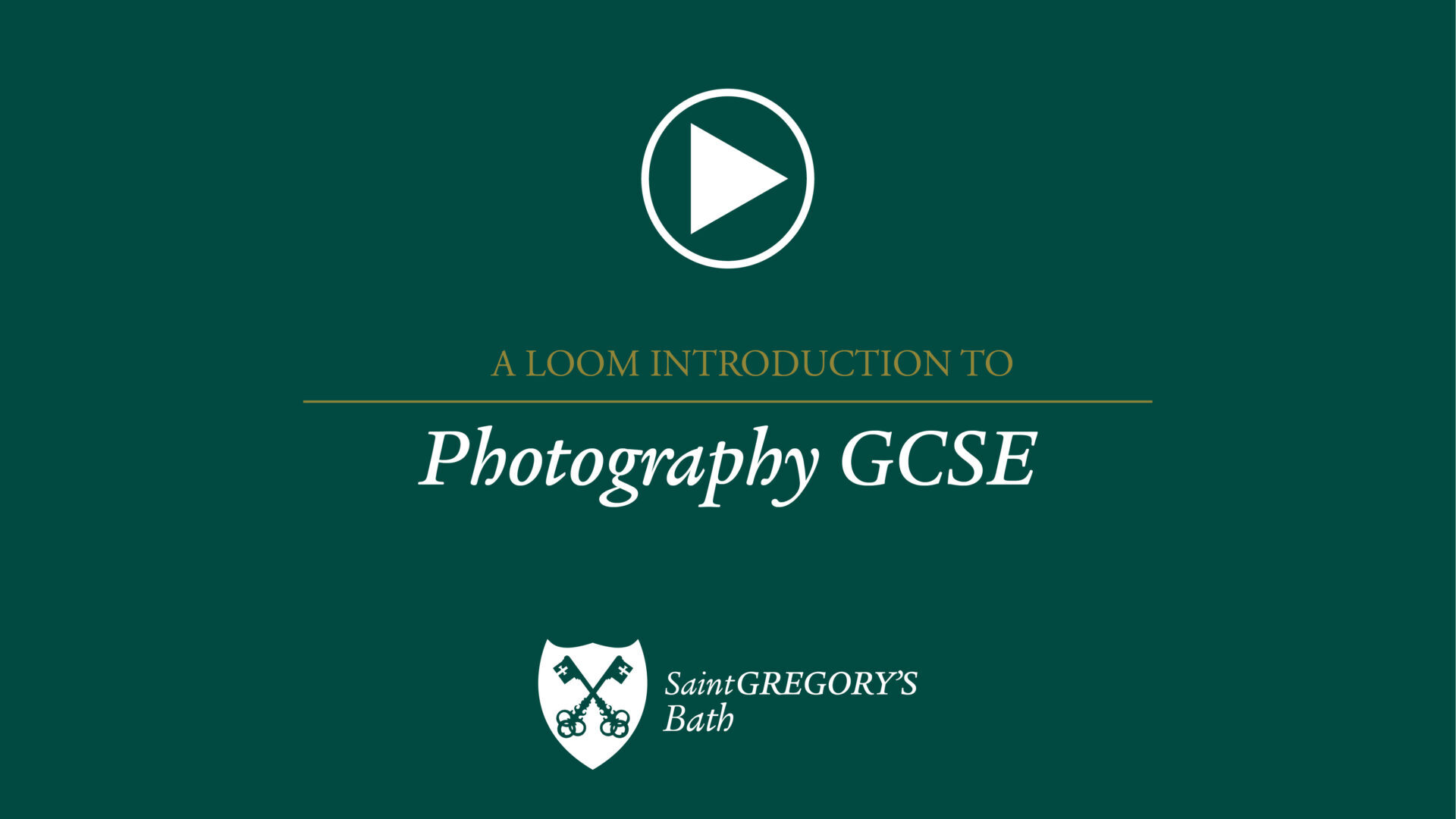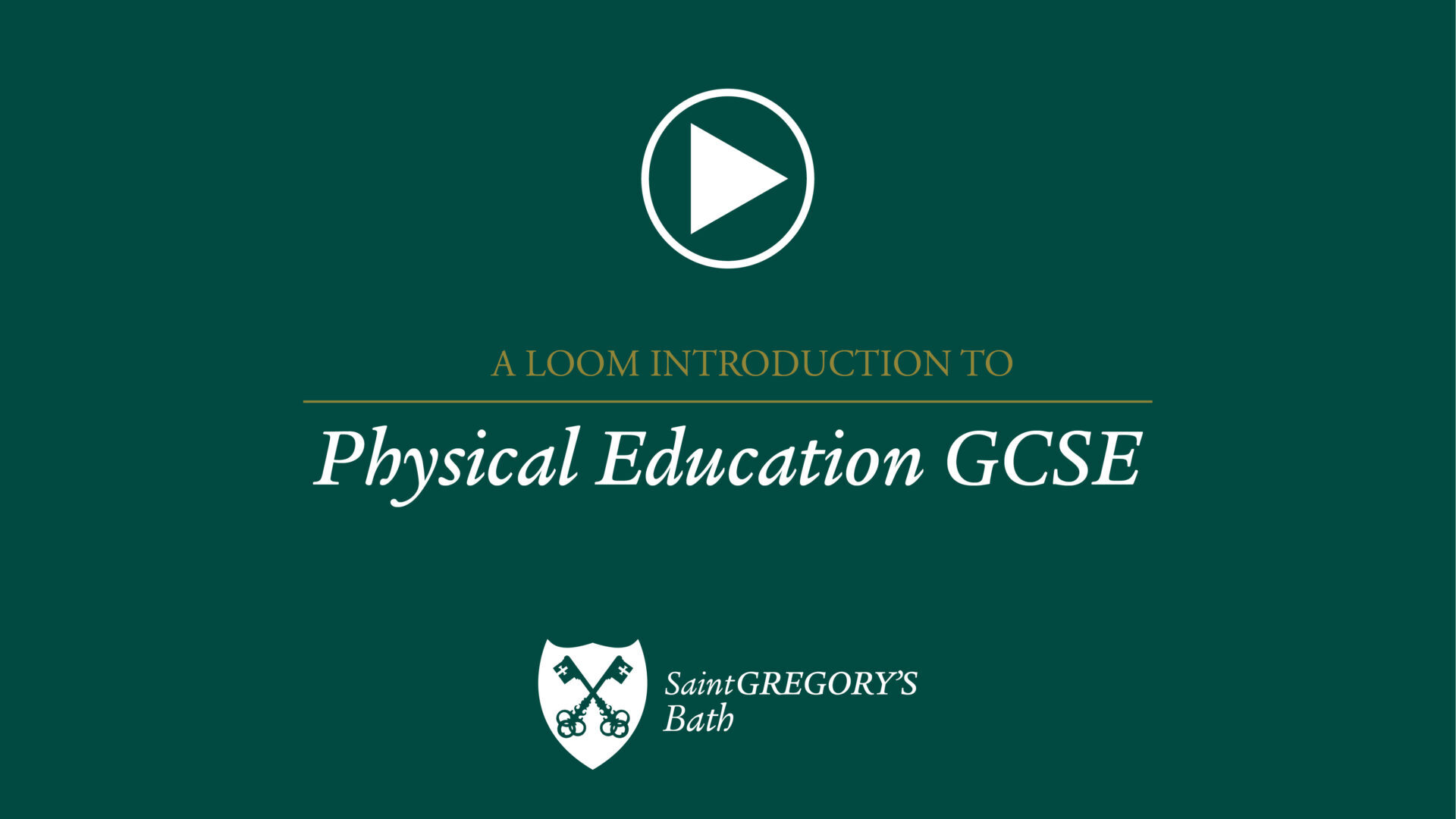- Home
- Curriculum
- GCSE Options
GCSE Options
The transition from Key Stage 3 to 4 is an exciting time for any young person as they now begin to consider their future and make decisions about the subjects they wish to choose.
The choices students make are important and will give direction to future career paths in either further/higher education or apprenticeships. It is essential that students follow a broad and balanced curriculum that will allow them to access their chosen path post 16.
At St Gregory’s, all students will study the following Core Subjects towards a GCSE qualification:
- Religious Education
- English – both Language and Literature
- Mathematics
- Science – Biology, Chemistry and Physics (either as 3 separate GCSEs or combined together as 2 GCSEs)
In addition, all students will study:
- Core Physical Education
- Personal, Social, Health Education (PSHE)
Students will add to their academic portfolio with three additional Optional Subjects. Further information, introductory videos and links to exam boards can be found via the web pages below. We hope that you find these presentations useful in finding out more about course content and the future subject pathways available.
Timeline for Options Choices
- Parents’ Evening – Teachers are able to discuss your child’s progress across the year, and discuss the potential for study at Key Stage 4.
- Initial GCSE preferences – Year 9 will give an initial indication of their preferences. These are not final choices but will help us build the timetable and option blocks from which the final choices for the next academic year will be made. It is important for these initial choices to be carefully considered, as the option blocks will be constructed in a way that satisfies as many initial choices as possible. The risk of students not being able to study the GCSEs of their choice will increase if the final GCSE options differ significantly from those selected at this initial stage.
- Options Evening – Parents/carers and students are invited into school to discover more about the options available, and ask questions to subject leads.
- Final Choices – students will be asked to make their final 3 choices from the option blocks we have been able to create. Please be aware that very occasionally we cannot run subjects due to lack of demand. For this reason, we will ask you to think carefully about your reserve subjects.
Year 9 Options Book for GCSE study in 2025-2027
GCSE Subject Information 2025-2027
Examination Board AQA
Subject Leader: Mrs Bowden
The aim of the course
This course offers students the opportunity to work across a broad range of media including drawing, painting, print making, sculpture and digital media linked with photography.
The course encourages candidates to develop their own work with reference to other artists in our own and other cultures, within a historical perspective and responding to current ideas.
Gallery visits, contextual studies and suggested courses of independent study, including using the internet, help candidates in personal research for their sketchbooks.
Homework/Preparatory Work
It should be noted that throughout the duration of the Art and Design course homework plays a big part and may take many hours. Students must be prepared and willing for this.
Portfolio of work
The Portfolio represents 60% of the marks available. The Portfolio consists of two coursework projects which includes work done in A4 and A3 sketchbooks as well as possible 3-dimensional work and larger paintings on boards and canvases.
Students develop coursework along broad themes that include still life, the environment and portraiture. Students’ work becomes progressively more independent, using any two or three dimensional media to explore their own ideas in order to show adequate refinement, experimentation and development of the project theme. The preparation work and supporting studies are as important as the finished pieces and should read like a visual diary, also including written notes and annotations.
Individual students may find that they want to concentrate their efforts in a major medium, e.g. painting, print-making, collage or photography.
Candidates keep all their work as each project is completed. Work is assessed at regular intervals and coursework is graded. Feedback is given in order for students to improve grades and continue their progression in future projects. At the end of the course all work is handed in for marking and moderation.
Examination – 10 hours over two days
A final extended project worth 40% of the marks awarded.
The examination presents candidates with a theme set by the board. Approximately ten weeks are given for preparatory studies, which should include research, experimental studies, broad use of media and a personal approach. The final piece is done during the exam which takes place in the Art Room over two consecutive days.
Assessment Method
Portfolio of work 60%
Externally set assignment 40%
Examination Board Edexcel (1BS0)
Subject Leader: Mrs Rorke
Course Overview
The aims and objectives of this qualification are to enable students to know and understand business concepts, business terminology, business objectives, the integrated nature of business activity and the impact of business on individuals and wider society.
Learners can apply knowledge and understanding to contemporary business issues and to different types and sizes of businesses in local, national and global contexts and develop as enterprising individuals with the ability to think commercially and creatively to demonstrate business acumen, and draw on evidence to make informed business decisions and solve business problems.
Learners can develop as effective and independent students, and as critical and reflective thinkers with enquiring minds use an enquiring, critical approach to make informed judgements and investigate and analyse real business opportunities and issues to construct well-argued, well-evidenced, balanced and structured arguments, demonstrating their depth and breadth of understanding of business.
Theme 1 concentrates on the key business concepts, issues and skills involved in starting and running a small business. It provides a framework for students to explore core concepts through the lens of an entrepreneur setting up a business.
Theme 2 examines how a business develops beyond the start-up phase. It focuses on the key business concepts, issues and decisions used to grow a business, with emphasis on aspects of marketing, operations, finance and human resources. Theme 2 also considers the impact of the wider world on the decisions a business makes as it grows.
Topic Areas
Theme 1 comprises five topic areas.
- Topic 1.1 Enterprise and entrepreneurship
- Topic 1.2 Spotting a business opportunity
- Topic 1.3 Putting a business idea into practice
- Topic 1.4 Making the business effective
- Topic 1.5 Understanding external influences on business
Theme 2 comprises five topic areas.
- Topic 2.1 Growing the business
- Topic 2.2 Making marketing decisions
- Topic 2.3 Making operational decisions
- Topic 2.4 Making financial decisions
- Topic 2.5 Making human resource decisions
Assessment
Paper 1: Theme 1 – Investigating small business (1 hour 45 minutes)
Paper 2: Building a business (1 hour 45 minutes)
Subject Leader: Mr A Foley
Qualification Aims
GCSE Computing focuses students on the technical aspects of IT with a specific emphasis on computer programming. For this reason students who have a particular strength in logic/mathematics will enjoy the course. Students use their knowledge and understanding of computer technology to become independent and discerning users of IT, able to make informed decisions about the use and be aware of the implications of different technologies.
Computers are changing every part of our lives at an ever increasing rate. No matter what field you want to go into, Computer Science is changing that industry; why not drive the future?
- Experience programming and making new software
- Find out how hackers attack computers
- Discover how computers work
- Solve logical problems
If learners want to go on to higher study and employment in the field of Computer Science, they will find that this course provides a superb stepping stone.
Assessment
This course is technical in its approach and elements of Mathematics are included.
The course consists of three units, two of which are theory and are examined by a written paper (50% each) and there is one coursework, controlled assessment unit:
- Component 1 – Computer Systems (50% overall grade)
- Component 2 – Computational Thinking, Algorithms and Programming (50% overall grade)
- Practical Programming – Students are to be given the opportunity to undertake a programming task(s) during their course of study which allows them to develop their skills to design, write, and test and refine programs using a high-level programming language. Students will be assessed on these skills during the written examinations, in particular component 02 (section B).Students’ programming ability will be an internally assessed controlled assessment that will be done mostly in lesson time and will take up 20 hours.
What will you learn?
This GCSE will equip you with a range of transferable practical and theoretical skills:
- Programming skills in a modern language
- An understanding of how computers and networks work
- Knowledge of cyber-security and how hackers attack systems
- Understanding ethical, legal, cultural and environmental concerns
Subject Leader Mrs Pearson
Qualification Aims
Dance is a rewarding option, though not an easy one. It gives you a chance to explore your creativity and artistic expression. Helping to develop confidence, communication, determination, organisation skills and physical fitness, all of which are essential skills in life and the work place. The GCSE dance course also serves as an introduction to studying and training in dance.
Course Content
The course focuses on the aesthetic and artistic qualities of dance and the use of movement as a medium of expression and communication through performance, creation and appreciation.
Students will have the opportunity to:
- Create dances which are performed and presented to others
- Study a range of different choreographic styles and develop a breadth of vocabulary and an understanding of dance form
- View and appreciate dance in the professional repertoire
- Develop their ability to analyse and appraise movement, content and performance
- Develop an awareness and understanding of the health and safety requirements implicit in all dance.
Assessment
The new GCSE Dance syllabus is assessed as follows:
Component 1: Performance and Choreography
Performance (30%)
Set phrases through a solo performance
Duet/trio performance
Choreography (30%)
Solo or group choreography
This is marked internally and externally moderated.
Total Practical: 60% of final CGSE
Component 2: Dance Appreciation
- Knowledge and understanding of choreographic processes and performing skills
- Critical appreciation of own work
- Critical appreciation of professional works
Written exam: 1 hour 30 minutes
40% of final CGSE
Am I suitable for the course?
The course is suitable for any student who would like to develop their own understanding of dance in choreography, performance and appreciation. Students will need to be prepared to work in their own time on practical coursework as well as take part in performances in and outside of school.
Examination Board AQA 8236
Subject Leader Ms Wright
Exam board link https://www.aqa.org.uk/subjects/design-and-technology/gcse/design-and-technology-8552
Loom Link https://www.loom.com/share/e0b3bbaf78e44089a8fcdd3cb892944e
Design and Technology: Product Design is a great opportunity for creative and practical students to explore and develop their skills in designing and making high quality marketable products.
Qualification Aims
Research real situations, identify gaps in the market and find practical design solutions to real problems. Design original and useful products using a range of materials and processes. Learn drawing and modelling skills to communicate and develop design ideas. Develop manufacturing skills using CAD CAM (Computer Aided Design and Computer Aided Manufacture). Develop hand skills using a range of materials including textiles, wood, card and plastic. For the Controlled Assessment you will independently manage a 30-35 hour design and make task working closely with a client throughout. You can choose to work in your preferred specialist materials and processes. Hard work, self-motivation and determination are essential skills to be successful in GCSE Design & Technology.
Course Content
Digital design portfolio:
Communicating your design journey with written work, annotated photos and video clips.
Investigation of contexts set by exam board
In-depth research, analysis and evaluations
Design brief, Specification
Initial and developed designs: sketching/modelling/CAD
Final design idea – modelling/CAD
Final prototype:
Planning for manufacture and manufacturing process
Presentation of prototype
Assessment
This course is technical in its approach and elements of Mathematics are included.
Task 1: 1x 2hr written exam 50%.
Task 2: 1x 30-35 hour Non Examined Assessment (NEA) 50% which includes a design portfolio and practical product.
Examination Board WJEC Eduqas GCSE (9-1) in DRAMA
Subject Leader Mrs Richards
The aim of the course
The course offers students the opportunity to explore drama as a practical art form – to learn new skills in both performance and design and grow in confidence as young people. Students will be encouraged to be creative and take risks and explore how ideas and meaning are communicated to an audience. Students will be introduced to practitioners, people who make theatre and their theories, influential playwrights and live theatre performance. The key focus of the course is practical and offers both a different way of learning and a balance to other subjects in the curriculum.
Course Content
The Eduqas course is a vibrant and accessible GCSE that caters for the widest range of abilities. Students begin in Year 10 by exploring a range of scripts/techniques/practitioners and dramatic forms alongside a visit to the theatre to explore their responses to live performance before beginning the assessment elements. The Eduqas specification gives equal importance to technical aspects of drama and performance. Students will devise their own work from a range of stimuli and track their progress through a lively portfolio of work full of inspirational ideas. They will perform scripts that suit their preferred style or look to develop their practical understanding and application of the technical elements of drama – sound, lighting, costume and make up. They will evaluate their own practical work and that of others and experience professional live theatre through numerous visits across the course. Students will have the opportunity to display their understanding of text and live performance in the written examination at the end of the course.
Assessment Method
Assessment is through internal assessment and external moderation, visiting practical examiner and written examination. The objectives for assessment are:
AO1- Create and develop ideas to communicate meaning for theatrical performance
AO2- Apply theatrical skills to realise artistic intentions in live performance
AO3- Demonstrate knowledge and understanding of how drama and theatre is developed and performed
AO4- Analyse and evaluate their own work and the work of others
Component One: Devising Theatre 40% 60 marks Internally assessed, externally moderated
Students will be assessed on acting or design. They will create, develop and perform a piece of devised theatre using the techniques of an influential practitioner (Bertolt Brecht) in response to a stimulus set by the examination board (15 marks). This is accompanied by a portfolio of work (30 marks) and written evaluation (15 marks) that traces the journey from research to final performance.
Component Two: Performing from a Text 20% 60 Marks Externally assessed by visiting examiner
Students will be assessed on acting or design. They will study two extracts from the same performance text chosen by the centre and perform using sections of text from both extracts. They will write a short 150 word brief for the examiner outlining their artistic intentions
Component Three: Interpreting Theatre 40% 60 Marks
1 hour 30 minutes written examination
Section A: Set Text. 45 marks
Students will respond to a series of questions on one set text.
Section B: Live Theatre Review. 15 marks
Students will answer one question from a choice of two assessing, analysing and evaluating a given aspect of a live theatre production seen during the course.
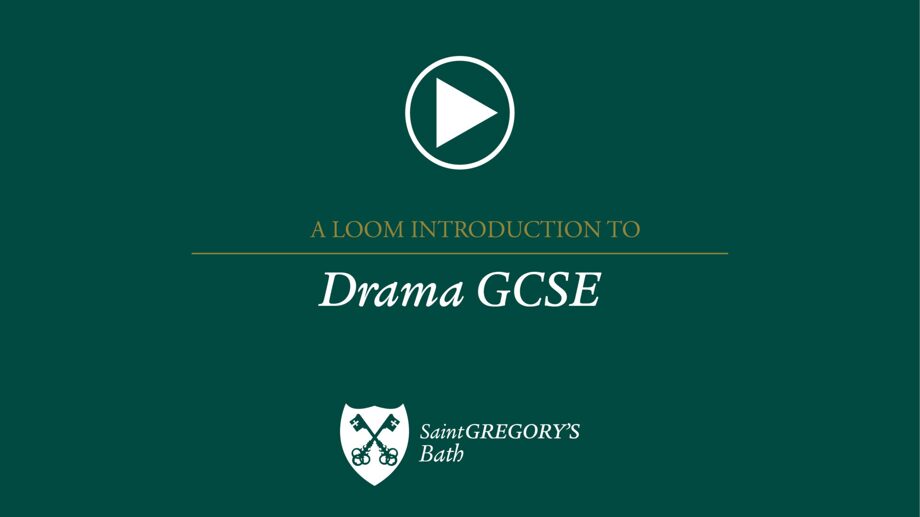
Examination Board AQA 8585
Subject Leader Miss Auburn
The aim of the course
This GCSE Food Preparation and Nutrition course is an exciting and creative course which focuses on practical cooking skills to ensure students develop a thorough understanding of nutrition, food provenance and the working characteristics of food materials. During the course you will be given the opportunity to practice a wide range of practical skills along with having a greater understanding of nutrition, the science behind food as a material and the wider environmental aspects associated with food.
The course is taught in a very “hands on” practical way. Students will learn how to make connections between theory and practice to apply their knowledge of food and nutrition.
Course content
Food preparation skills are integrated into five core topics:
1. Food, nutrition and health
2. Food science
3. Food safety
4. Food choice
5. Food provenance
Assessment method
In Year 11 students will complete two Non Examination Assessments (NEA):
Task 1: Food Science Investigation (approx.10 hours) 15% of GCSE
Task 2: Food preparation Assessment (approx.20 hours including a 3 hour practical assessment) 35% of GCSE
Written examination: 1 hour 45 minute exam, 50% of GCSE
Examination Board Eduquas (Specification A)
Subject Leader Mrs Hillier-Brown
Course Content
St Gregory’s has held the prestigious Secondary Geography Quality Mark by the Geographical Association since 2014 in recognition of the quality of teaching, learning and examination results. In November 2022, we were accredited as a national Geography Centre of Excellence. Our GCSE results are consistently significantly above the national average and are amongst the best in the school.
The overarching aims of this qualification are that students will develop the ability to think ‘like a geographer’. Students will develop the skills to conduct enquiries in the classroom and in the field in order to develop their understanding of specialised geographical concepts and current geographical issues.
Eduqas GCSE Geography (Specification A) develops an enquiry approach to the study of geographical information, issues and concepts. Fieldwork is an essential aspect of geographical education and of this qualification. It is placed at the heart of this specification and fieldwork is embedded within the programmes of study.
Students will consolidate and extend their understanding of geographical concepts learned in the classroom by engaging with enquiries conducted outside of the classroom and school grounds. Furthermore, students will be challenged to apply what they have learned through specific fieldwork in local contexts, to the wider context of UK geography.
How is the course structured?
Component 1:
Changing Physical and Human Landscapes (Year 10)
Theme 1: Landscapes and Physical Processes
Theme 2: Rural-urban Links
Theme 3: Coastal Hazards and their Management
Component 2:
Environmental and Development Issues (Year 11)
Theme 4: Weather, Climate and Ecosystems
Theme 5: Development and Resource Issues
Theme 6: Social Development Issues
Component 3: Fieldwork Enquiry (Years 10 & 11)
Part A: approaches to fieldwork methodology, representation and analysis.
Part B: how fieldwork enquiry may be used to investigate geography’s conceptual frameworks
Part C: application of broad geographical concepts to a wider UK context and assess the ability to make and justify a decision.
How is the course assessed?
Component 1:
Changing Physical and Human Landscapes
Written examination: 1 hour 30 minutes (35% of
qualification)
Component 2:
Environmental and Development Issues
Written examination: 1 hour 30 minutes (35% of
qualification)
Component 3: Applied Fieldwork Enquiry
Written examination: 1 hour 30 minutes (30% of
qualification)
Geography Fieldwork Opportunities
Year 10: A one day investigation into the sphere of influence of a honeypot site (coastal location in the south of England) – June
Year 11: A one day investigation into the use of transects within the city of Wells in January.
Examination Board AQA 8145
Subject Leader Miss K McFarlane
Course Content:
This course is a lively, interesting and challenging opportunity to study History. It encourages the student to explore crucial and controversial issues in a variety of creative ways and closely traces how the past has directly influenced the world today. We aim to help students to acquire knowledge of the past through interesting and varied learning activities. This course is ideal preparation for A Level courses in humanities subjects.
How is the course structured?
This qualification is linear, meaning that students will sit all their exams at the end of the course. The GCSE History course comprises two examination papers and the following four elements:
Paper 1: Understanding the Modern World
A Period Study. Germany, 1890–1945: Democracy and dictatorship.
This period study focuses on the development of Germany during a turbulent half century of change. It was a period of democracy and dictatorship – the development and collapse of democracy and the rise and fall of Nazism. Students will study the political, economic, social and cultural aspects of these two developments and the role ideas played in influencing change. They will also look at the role of key individuals and groups in shaping change and the impact the developments had on them.
Wider World Depth Study. Conflict and tension between East and West, 1945–1972
This wider world depth study focuses on the causes and events of the Cold War and seeks to show how and why conflict occurred and why it proved difficult to resolve the tensions which arose during the Cold War. This study also considers the role of key individuals and groups in shaping change and how they were affected by and influenced international relations.
Paper 2: Shaping the Nation
A Thematic Study: Britain: Health and the people: c1000 to the present day
This thematic study will enable students to gain an understanding of how medicine and public health developed in Britain over a long period of time. It considers the causes and consequences of short and long term developments, their impact on British society and how they were related to the key features and characteristics of the periods during which they took place. Topics include the Black Death, the discoveries of the medical Renaissance, developments in surgery, and the discovery that germs were the cause of disease.
British depth study: Elizabethan England:c1568-1603
This option allows students to study in depth a specified period, the last 35 years of Elizabeth I’s reign. The study will focus on major events of Elizabeth I’s reign considered from economic, religious, political, social and cultural standpoints, and arising contemporary and historical controversies.
This component of the course incorporates the study of a historic environment. Students will be examined on a specific site in depth. This site will be as specified and will be changed annually. The site will relate to the content of the rest of this depth study. It is intended that study of different historic environments will enrich students’ understanding of Elizabethan England.
How is the course assessed?
There are two exams at the end of Year 11
Paper 1: Understanding the Modern World – 2 hrs
50% of GCSE
Paper 2: Shaping the Nation – 2 hrs
50% of GCSE
History Quality Mark – Gold Award
The History Department at St Gregory’s is delighted to announce they have been awarded the Historical Association History Quality Mark (HQM) Gold Award. The Quality Mark is a prestigious award that recognises the excellence of history provision in a school and assess and values the history provision of the teacher, their department and the school and what is being offered to young people.
The Historical Association congratulated the St Gregory’s History Department and commented in their detailed report on the ‘The staff at the school who were unfailingly helpful and passionate’ in providing ‘meticulously’ planned lessons and assessments, leading to ‘Teaching and learning of a very high standard’. The report also praised the ‘broad and balanced curriculum’ on offer for St Gregory’s students in History, especially at GCSE.
Subject Leader Mrs Lemee
Course Content
Through learning a language we gain a better understanding of how people in another country live, their customs and attitudes and how they do things. The more we understand and respect people in other countries, the greater the hope for world peace.
With the turbulent political and economic events of the recent months, studying languages is even more important than before. In the knowledge society of the 21st century, language competence and intercultural/global understanding are not optional extras; they are an essential part of being a citizen, shaping the way we think and giving the potential to communicate with the other half of the world.
Studying a language also helps to develop our general mental ability – it demands we listen carefully, to think exactly and to examine things in detail.
Aims
- To develop the ability to understand and use a language effectively for purposes of practical communication
- To develop the ability to use and understand a language both imaginatively and creatively
- To develop an understanding of grammar
- To encourage positive attitudes to language learning and speakers of other languages and a sympathetic approach to other cultures and civilisations
- To offer insights into the culture and civilisation of other countries
- To promote learning skills of a more general application such as analysis, memorising and drawing of inferences
- To form a sound base of the transferable skills, language and attitude required for further study, work and leisure
- To provide enjoyment and intellectual stimulation
How is the course structured?
GCSE French and Spanish is changing with first teaching in September 2023 and first examination in June 2025.
Due to new specifications for June 2024, we are still in discussions about which examining board we will use : AQA or EDEXCEL. However all boards follow a similar structure or themes and grammar Students will have already met some of these areas in Key Stage 3. They will now be extended and developed to increase the range of expression and understanding in the skills of listening, speaking, reading and writing in the target language. Students will study all of the following themes on which the assessments are based:
Theme 1: People and lifestyle
Theme 2: Popular culture
Theme 3: Communication and the world around us
The major changes to the MFL GCSEs are the use of English for all instructions and the addition of tasks on dictation and reading aloud. Comprehension texts can contain only 2% of words from outside the vocabulary lists, and those items from outside the word lists must be glossed.
How is the course assessed?
Candidates will still be tested in the four main skills; listening, speaking, reading and writing. This will not change.
Paper 1: Listening – Examination 25%:
Foundation (35 mins) Higher (45mins)
Paper 2: Speaking – Examination 25%
Foundation (7-9 mins) Higher (10-12 mins)
Paper 3: Reading – Examination 25%
Foundation(45 mins) Higher (1 hour)
Paper 4 : Writing – Examination 25%
Foundation (1 hour) Higher (1 hour 15 mins)
The four skills are tested at the end of Year 11 by examination. All papers are available at either foundation or higher tier. Candidates will not be able to mix tiers on different papers.
Foundation tier exams (possible grades 1-5) or Higher tier exams (possible grades 4-9).
Examination Board AQA
Subject Leader Mrs Hook
Aims
Chinese GCSE gives students an opportunity to add an exciting international dimension to the range of subjects that they study. The course not only equips them with the ability to communicate in Mandarin Chinese but also brings the intellectual excitement and challenge of learning how a non-European language works. It opens up a window onto a fascinating culture and furnishes them with a valuable qualification for future employment prospects.
Syllabus and assessment method
The students are tested on all four skills: reading, writing, speaking and listening. All skills are tested at the end of Year 11 and each carry the same weight in terms of marks (i.e. 25%).
Because the Chinese script is not alphabetical and takes longer to learn than European languages, all questions and instructions in the papers will be in English. Also, in the reading and listening exams, the candidates will respond in English.
Topics covered in the syllabus include contemporary and cultural themes. They are organised into three main themes and twelve topics:
Theme 1: identity and culture:
Me, my family and friends
Technology in everyday life
Free-time activities
Customs and festivals
Theme 2: local, national, international and global areas of interest
Home, town, neighbourhood and region
Social issues
Global issues
Travel and tourism
Theme 3: current and future study and employment
My studies
Life at school
Education post-16
Career choices and ambitions
Students are well supported with text books and many imaginative on-line resources. St Gregory’s also has links with schools in China so students get opportunities to make friends and communicate with their peers.
In addition, since 2017 St Gregory’s has been on the national Mandarin Excellence Programme which opens up many new opportunities for our students of Mandarin to boost their learning and take part in cultural events.
Examination Board Eduqas
Subject Leader Mrs Sterlini
Aims of the course
The course offers students the chance to explore a wide variety of different genres of music in an engaging and practical way. Throughout the course, students will broaden their skill set through trips, workshops and both internal and external performance opportunities.
The Course
The course explores a selection of pieces from a variety of areas of study. These areas include:
Area of study 1: Musical Forms and Devices
In this area of study, learners place music within a broad historical context. However, it is not expected that they develop a detailed chronology of music aside from an awareness of the principal features of Baroque, Classical and Romantic music.
Area of study 2: Music for Ensemble
In this area of study, learners develop understanding of sonority and texture, including instrumental and vocal groupings in a range of genres as appropriate to their context.
Area of study 3: Film Music
In this area of study, learners will develop an understanding of film music including the use of timbre, tone colour and dynamics for effect.
Area of study 4: Popular Music
In this area of study, learners will develop an understanding of popular music: pop, rock and pop, bhangra and fusion (of different styles).
Students will learn key features of these styles by listening to and performing a variety of musical pieces. Students will also study two set works in more detail:
- Badinerie by J.S.Bach for Flute and String Orchestra with Harpsichord (Final movement, Orchestral Suite No.2 in B minor, BWV 1067)
- Africa by Toto (1982)
Students will have a listening examination at the end of the course which contains listening questions on set works and unfamiliar pieces of music. Students will use their knowledge of the musical elements to answer the questions.
Performance and composition are also studied through these topics and all students who enroll on the course are strongly advised to receive instrumental/vocal tuition. There is no minimum musical grade to access the course, however students will need to perform at a Grade 3 standard by the end of Year 11. Students do not need to have taken any graded exams to be successful in GCSE Music.
Students are also strongly encouraged to regularly attend a co-curricular activity within the Music department to help strengthen their ensemble performance skills.
Course Components
Performing on any instrument or voice (30%)
Learners will submit two performances as part of the course: a solo and ensemble totaling 4-6 minutes. Any instrument or voice can be used for this component.
Composing/Arranging (30%)
Students will submit two compositions across the course. The first is a ‘free’ composition, where students have the opportunity to explore a musical style they are most interested in. The second is in response to a brief set by the exam board. The total duration for this is between 3-6 minutes.
Listening and Appraising (40%)
Students sit a listening paper that demonstrates their understanding of music from the Areas of Study covered over the two years.
The Assessment
All coursework (60%) will be completed by Easter in Year 11. The listening paper (40%) is completed in the final term of Year 11.
Examination Board AQA 8206
Subject Leader Mr Duffy
Candidates will be introduced to a variety of experiences exploring a range of lens-based and light-based media, techniques and processes, including both traditional and new technologies.
The course encourages candidates to develop their own work with reference to other image makers in our own and other cultures, within a historical perspective and responding to current ideas.
Gallery visits, contextual studies and suggested courses of independent study, including using the internet, help candidates in personal research for their sketchbooks.
Homework/Preparatory Work
It should be noted that throughout the duration of the Photography course, homework plays a big part and may take many hours. Students must be prepared and willing for this.
Cost
There is a cost of £10 per student, per year to cover ink costs and materials. There are cameras which would be suitable for the course which can be signed out from school on a short-term basis (although some students may wish to purchase a suitable camera before or during the course).
Portfolio of work:
The Portfolio represents 60% of the marks available. The Portfolio consists of two or more coursework projects which will include many investigatory shoots, experimentation and analysis.
Students develop coursework along broad themes that include still life, the landscape and portraiture. Students’ work becomes progressively more independent, using photographic media to explore their own ideas in order to show adequate refinement, experimentation and development of the project theme. The preparation work and supporting studies are as important as the finished pieces and should read like a visual diary, also including written notes and annotations.
Candidates keep all their work as each project is completed. Work is assessed at regular intervals and coursework is graded. Feedback is given regularly in order for students to improve grades and continue their progression in future projects. At the end of the course all work is handed in for marking and moderation.
Examination – 10 hours over two days
A final extended project worth 40% of the marks awarded.
The examination presents candidates with a theme set by the board. Approximately ten weeks are given for preparatory studies, which should include research, experimental studies, broad use of media and a personal approach. The final piece/s is created during the exam which takes place in the Photography room over two consecutive days.
Assessment method
Portfolio of work 60%
Externally set task 40%
Students are encourage to look at student work and course structure/resources here:
stgregsphotography.weebly.com
Examination Board AQA 8582
Subject Leader Mrs McHale
What can GCSE Physical Education offer you?
- The chance to participate in and develop your practical abilities in a range of activities, taken from the areas of Invasion Games, Net/Wall Games, Individual activities and Striking/Fielding Games.
- The opportunity to extend your knowledge of the rules and etiquette involved in a variety of sports.
- An introduction to specialised training methods and styles and types of fitness testing.
- Knowledge of the human body and how it responds to exercise.
- Understanding of social factors affecting sports participation.
What you should have?
- An all-round interest in and enthusiasm for Physical activity.
- A willingness to learn new skills and techniques and apply the necessary effort in a variety of different activities.
- An ability to appreciate a scientific approach to studies.
Course Content
Practical Element:
This concentrates on practical performance in three different physical activities in the role of player/performer (one in a team activity, one in an individual activity and a third in either a team or in an individual activity). The final assessment of your practical skills will provide 40% of your final mark. This includes analysis and evaluation of performance to bring about improvement in one activity.
Theoretical Element:
This will involve theoretical work and will be taught in a classroom. Assessment will be in the form of two exams Paper 1 – The human body and movement in physical activity and sport 30% (Applied anatomy and physiology, Movement analysis, Physical training, Use of data).
Paper 2 – Socio-cultural influences and well-being in physical activity and sport 30% (Sports psychology, Socio-cultural influences, Health, fitness and well-being, Use of data). This will contribute towards 60% of the final mark.
This course is an exciting one which provides a mixture of both practical and theoretical activities which adds variety to the GCSE programme. It is both imperative that any student that chooses this course is fully committed to BOTH ELEMENTS of the course. Written homework will be set each week and full P.E. kit must be worn for each practical lesson.
Course Assessment
Practical: 40%
Theory Examination: 60%
